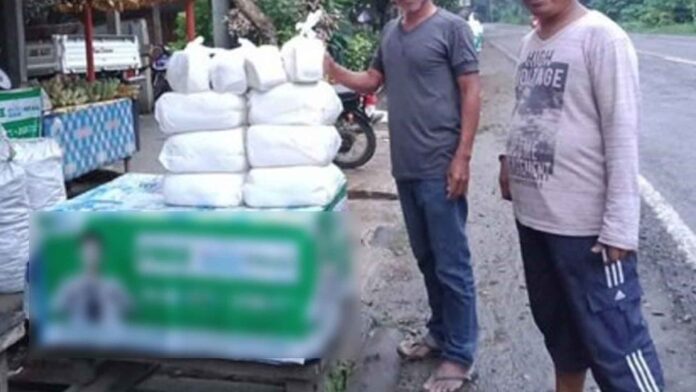The coronavirus disease 2019 (Covid-19) pandemic may have brought social and economic challenges, but a group of cassava growers here managed to sustain its livelihood and stay afloat.
The Lubigan Cassava Farmers Association, whose members are into the production of grated cassava―locally known as pangi―has 152 members who cultivate some 200 hectares of cassava in the coastal village of Lubigan.
“There are farmers from nearby barangays who supply us cassava, but their harvest is seasonal because they don’t regularly plant cassava unlike our association,” said Abdulhakim Jala, president of the Lubigan Cassava Farmers Association.
Pangi is raw grated cassava, formed into blocks and wrapped in banana leaves or plastic. The farm gate price for each block, which weighs between 11 to 13 kilos, is pegged at PHP170.
Jala said that the farm gate price has dropped to PHP140 apiece when the coronavirus disease 2019 (Covid-19) pandemic hit this city.
Many residents here consider grated cassava as a staple food, known as shanglag (fried rice) when cooked. The other customers, who are into the buy-and-sell business, cook the grated cassava into different kinds of native kakanin such as puto, bianban, and suman.
The delicacies are sold at the local public market and served in some of the eateries downtown.
Food pass
The association slowly resumed selling pangi when the Department of Agriculture issued food passes two weeks after the enhanced community quarantine (ECQ) took effect.
“We had no production when the ECQ was imposed; we had no income,” Jala said, adding the association’s members resorted to a “bayanihan” system to help each other with their daily needs.
“In terms of food, if you’re used to each cassava, you will survive,” Jala said. “We cook vegetables, grown in our backyard, as our viand.”
When they resumed producing pangi, the volume of production and sale was not as much as compared prior to the pandemic.
“There’s nothing we can do; it was better than no income at all,” Jala said.
Jala said that previously, they transport every evening three truckloads of pangi, which is around 1,500 blocks, to their customers at the local public market.
Occasionally, Jala said the group would supply pangi to the provinces of Basilan and Sulu through motorboats.
Cosechas de Zamboanga
The Agri-Trade Fair, dubbed as Cosechas de Zamboanga (Zamboanga’s Harvest), is part of the yearly Zamboanga Hermosa Festival, the highlight of which is the feast of Our Lady of the Pillar, this city’s patron saint.
Carmencita Sanchez, the city agriculturist, said the activity will run until October 15 and aims to showcase the locally-produced products of the different agricultural districts and fishery organizations in this city.
“Through this event, the farmers can showcase their products as well as have the opportunity to establish a new market,” Sanchez said.
Jala said the Cosechas de Zamboanga has been a blessing for the association, helping them cushion the effect of the pandemic.
For this year’s Agri-Trade Fair, Jala’s group is also selling peanut butter as well as dried fish.
Jala said with the way things are happening, the members of the association are with high spirits they can recover the market for pangi they lost due to the pandemic.
“With perseverance and patience, we are optimistic we can recover. Our livelihood will be the same as it was before the health pandemic,” Jala said. (PNA)






